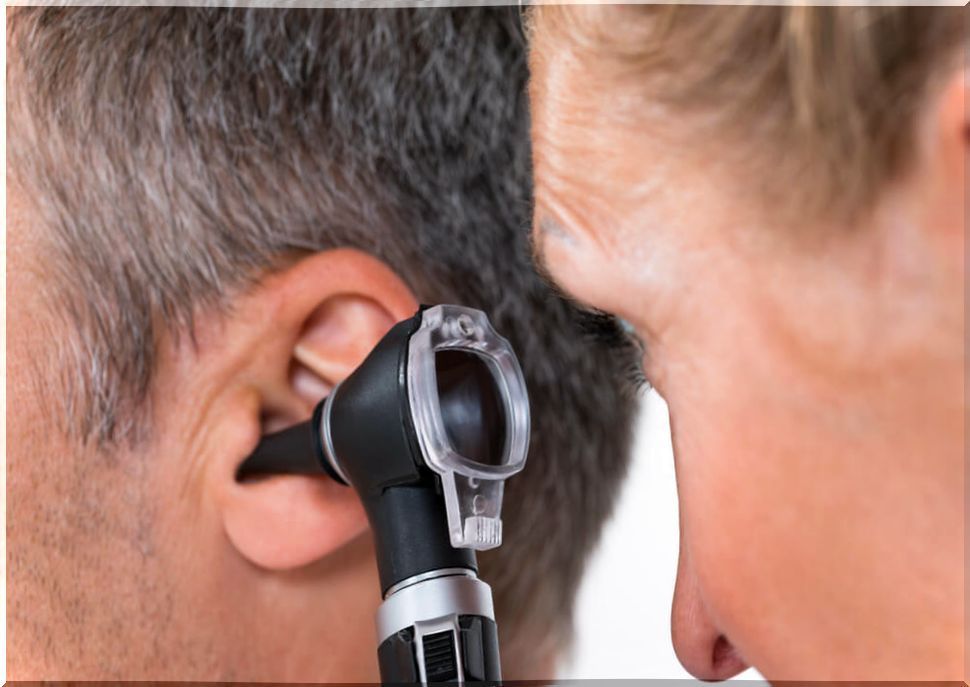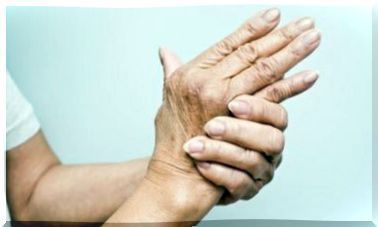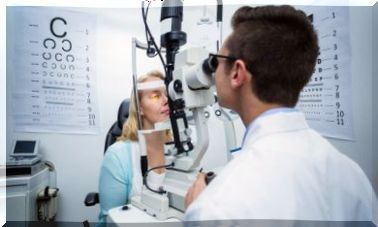Labyrinthitis: Causes, Symptoms And Treatment
Labyrinthitis can be the side effect of a viral infection. Since it affects the labyrinth located in the inner ear, it can cause severe vertigo and hearing difficulties.

Labyrinthitis, also known as vestibular neuritis, is an inflammation of the inner ear, specifically in the region where the labyrinth is located, a structure responsible for maintaining balance. It is a benign disease that causes severe vertigo.
In most cases it occurs as a side effect of a viral infection. In fact, 50% of the time, patients report having had viruses such as influenza, sinusitis or pharyngitis.
Doctors often recommend a number of medications to minimize symptoms. However, it is necessary to do several diagnostic tests, since sometimes, the symptoms are similar to those of other more serious diseases.
Causes of labyrinthitis

Labyrinthitis can develop at any age. Most of the time it is the product of viral diseases such as those that affect respiratory health. Less commonly, an ear infection can lead to labyrinthitis. Other causes include allergies or certain medications that are bad for the inner ear.
It is also related to:
- Stomach viruses.
- Herpes virus.
- Bacterial infections.
- Infectious organisms such as the one that causes Lyme disease.
Risk factor’s
In addition to infectious microorganisms, there are other factors that increase the risk of suffering from this inflammation in the hearing .The most common are:
- Excessive consumption of alcoholic beverages.
- Have a history of allergies.
- Being subjected to constant stressful situations.
- To smoke.
Symptoms of labyrinthitis
The inner ear plays a very important role in hearing and balance. Therefore, the person suffering from labyrinthitis may lose balance and hearing ability.
Symptoms start suddenly and can be very severe. Although they tend to decrease over the weeks, sometimes the dizziness continues when the head is jerked around. In addition, other symptoms appear such as dizziness, sudden dizziness, loss of balance, nausea, vomiting and ringing in the ear (tinnitus)
Diagnosis of labyrinthitis

To diagnose labyrinthitis, the doctor performs a physical exam and neurological evaluation. However, you can order other complementary tests, as the symptoms are sometimes similar to those of other health problems such as:
- Severe migraine
- Blows or trauma
- Damage to the arteries in the neck.
- Benign paroxysmal positional vertigo.
- Brain tumor.
The evidence for such rule out conditions may include: you hearing tests, blood tests, CT scan or MRI of the head.
Treatment for labyrinthitis
Treatment for labyrinthitis is aimed at controlling symptoms. Although medications are almost always suggested to reduce the severity and recurrence of vertigos. Next, we review the most used drugs:
- Antihistamines.
- Medicines to reduce dizziness and nausea.
- Sedatives, such as diazepam.
- Corticosteroids to reduce inflammation of the inner ear.
- Antiviral drugs.
Home care
To complement the treatment of labyrinthitis, the professional in charge recommends a series of care at home. These measures allow you to manage vertigo and also prevent possible falls or accidents. Care includes:
- Keep at rest and rest.
- Avoid sudden and sudden movements or changes of position.
- Resume activities gradually.
- Avoid exposure to bright lights or screens during attacks.
- Get up carefully from a lying or sitting position.
- Increase water consumption.
- Avoid the intake of alcoholic beverages.
- Reduce the consumption of salt and refined sugar.
- Do not drive vehicles.
When do you have to go to the emergency room?

Serious symptoms usually go away within a week. However, it can take up to 3 months for the symptoms of labyrinthitis to completely disappear.
Older adults are more likely to have dizziness that lasts longer. People with severe vertigo can become dehydrated due to the frequency of vomiting.
However, some cases tend to get complicated, even with medical treatment. Therefore, it is important to go to the emergency room in case of warning symptoms such as:
- Epileptic seizures.
- Double vision.
- Lightheadedness or fainting spells.
- Difficulty in speech.
- Weakness or paralysis
When symptoms continue for a long time, specialized rehabilitation therapies can help train the brain to improve balance ability.









